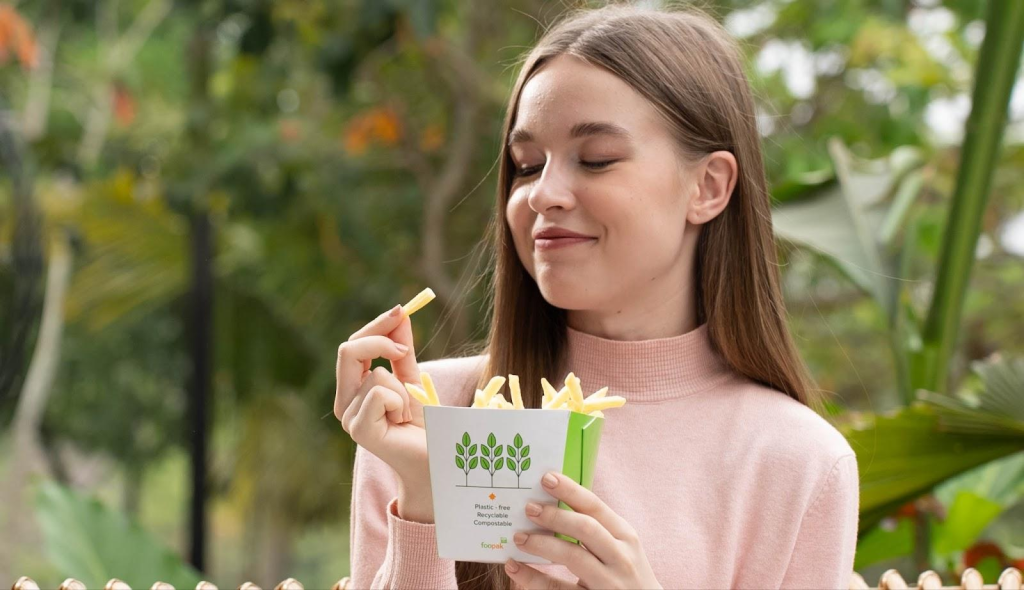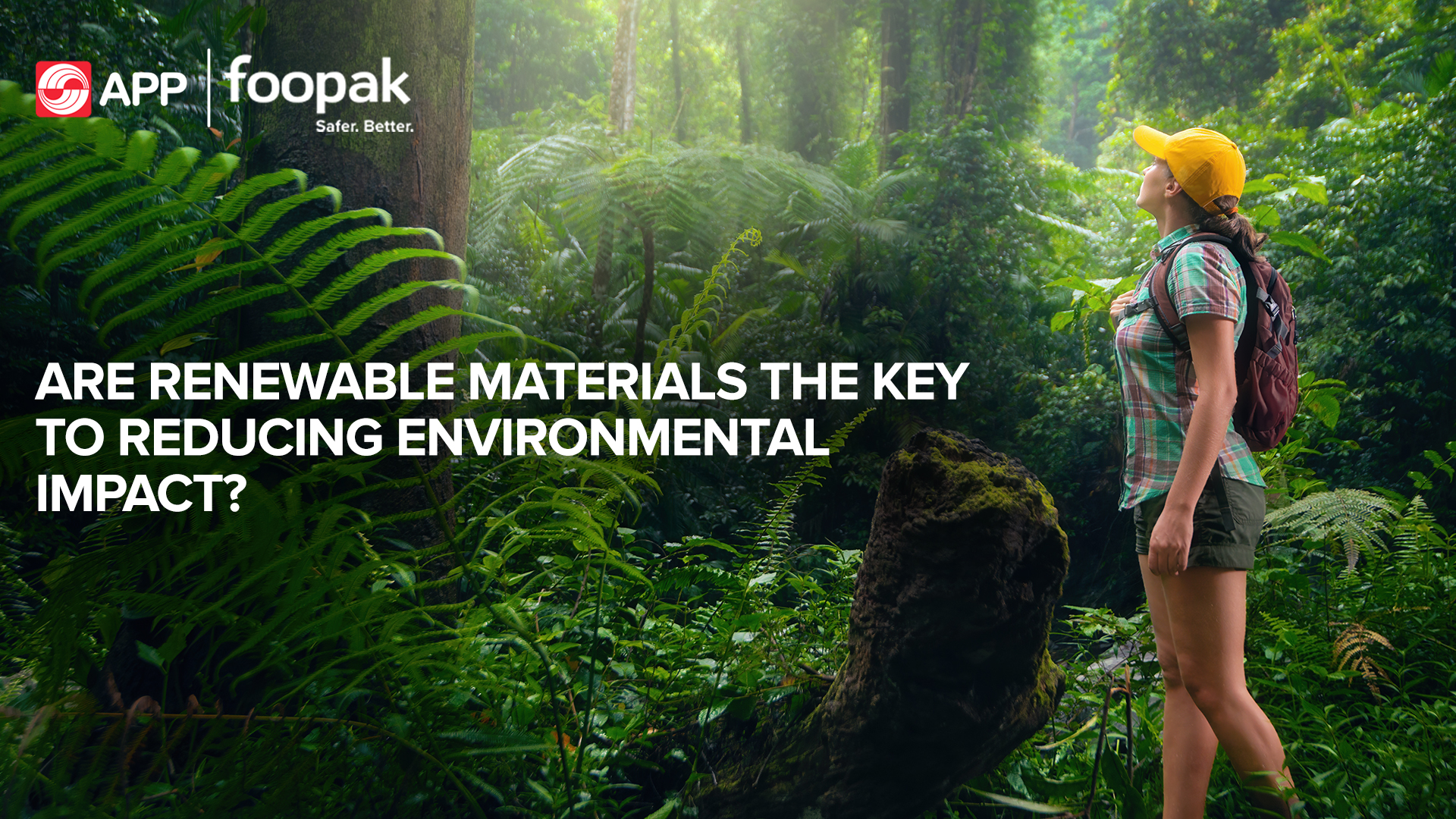Renewable materials are gaining momentum across industries, including food packaging, as part of a global movement toward sustainability and improved energy efficiency. This shift is both driven and shaped by advancements in key components like virgin fiber, water-based barrier coatings, and other eco-friendly alternatives.
Certified forest materials are recognized as renewable because trees can naturally regrow when forest management prioritizes long-term ecological balance and responsible harvesting.
What Are Renewable Materials?

Renewable materials are natural resources that can replenish themselves over time and be sustainably sourced for ongoing use without harming the planet. Examples include wood, cotton, and more.
By utilizing renewable materials, businesses can contribute to a circular economy, where resources are reused and waste is minimized. This approach not only supports environmental goals but also aligns with consumer demand for more sustainable products, helping brands improve their market position and reduce their carbon footprint.
Read More: Building a Sustainable Future: Exploring Circular Economy Opportunitites
Why Renewable Materials Matter
The choice of materials shouldn’t be overlooked. It plays a direct role in shaping a more sustainable future.
1. Lower Carbon Footprint
Renewable materials offer a more energy-efficient production process and generate fewer emissions across their lifecycle. Adopting plant-based or forest-certified alternatives enables companies to minimize environmental risk, meet sustainability benchmarks, and support long-term carbon reduction strategies.
2. Reduce Resource Depletion
Unlike fossil-based materials, renewables can naturally regenerate when managed responsibly. This helps preserve limited natural resources and ensures future generations still have access to the raw materials they need.
3. Promote Sustainable Economic Growth
Adopting renewable materials and circular economy practices helps stimulate long-term economic growth by fostering innovation, creating green jobs, and supporting local industries. Businesses that prioritize sustainable sourcing and production methods often experience enhanced brand loyalty, access to new markets, and reduced operational costs over time.
Common Types of Renewable Materials

There are several common types of renewable materials used across various industries and applications.
1. Wood
Sourced from trees, wood is a highly renewable material when harvested sustainably from certified forests. It is commonly used in construction, furniture, paper products, and packaging, including food packaging like containers.
Read More: The Smart Choice: Make a Sustainable Impact with PEFC-Certified Paper Packaging
2. Bio-Based Plastic and Polymers
Unlike regular plastics, bio-based plastics are derived from natural plant sources like corn or sugarcane. These materials are used in packaging, medical devices, and consumer goods and are often biodegradable or compostable.
3. Linen
Made from the fibers of the flax plant, linen is a renewable material that requires fewer pesticides and fertilizers than cotton. It is used in textiles, apparel, and eco-friendly packaging.
4. Algae and Seaweed-Based Materials
These innovative materials are made from various species of algae and seaweed. They grow quickly without requiring land or freshwater, making them an environmentally friendly choice. They offer sustainable alternatives to plastics, used in food packaging, bioplastics, and even textiles.
5. Leather
Natural leather can be considered renewable when sourced from livestock raised sustainably. Innovations in leather alternatives, such as plant-based or lab-grown leather, are also emerging, reducing reliance on traditional animal leather while promoting a more eco-friendly and cruelty-free approach.
Foopak Provides Paperboard from Certified Renewable Materials
Foopak demonstrates a strong commitment to sustainability by using renewable materials in its paperboard products. The wood used is certified by PEFC, ensuring it comes from responsibly managed forests. Discover solutions like Foopak Bio Natura and Foopak Bio Container designed to support sustainable food and beverage packaging for your business here.
